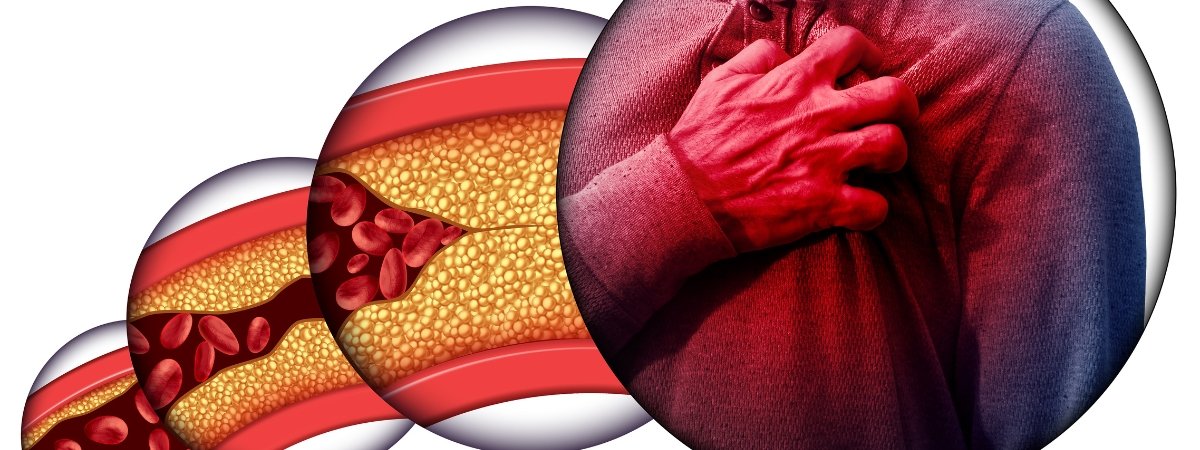Heart disease remains one of the leading causes of death in the United States, but the good news is that there are natural, lifestyle-focused steps you can take to reduce your risk. By adopting healthy habits, you can strengthen your heart, improve your overall well-being, and significantly lower your chances of developing heart-related issues. Here’s how you can naturally protect your heart and keep it in good shape.
Why Focus on Natural Approaches?
Natural strategies for lowering the risk of heart disease involve lifestyle changes rather than relying solely on medication. These approaches focus on promoting heart health, reducing inflammation, and managing risk factors such as high blood pressure, cholesterol, and obesity. Incorporating these strategies into your daily life can make a significant difference in the long run.
Key Natural Ways to Lower the Risk of Heart Disease

- Adopt a Heart-Healthy Diet:
- Focus on foods rich in nutrients and low in unhealthy fats, sugar, and salt.
- Incorporate more fruits, vegetables, whole grains, lean proteins, and healthy fats (like those found in avocados, nuts, and olive oil).
- Avoid trans fats and limit saturated fats, often found in processed foods and red meats. Instead, opt for sources of omega-3 fatty acids, such as salmon, chia seeds, and walnuts, which can help reduce inflammation and lower cholesterol levels.
- Stay Physically Active:
- Aim for at least 150 minutes of moderate aerobic exercise, such as brisk walking, swimming, or cycling, each week.
- Incorporate strength training exercises twice a week to build muscle, which helps boost metabolism and maintain a healthy weight.
- Even short bursts of activity, like taking the stairs or doing a 10-minute workout, can positively impact heart health.
- Maintain a Healthy Weight:
- Carrying excess weight, especially around the abdomen, can increase the risk of heart disease.
- Aim for a gradual, sustainable weight loss by combining a nutritious diet with regular physical activity.
- Avoid crash diets, which can stress the heart and lead to unhealthy weight fluctuations.
- Manage Stress Levels:
- Chronic stress can negatively impact heart health by raising blood pressure and promoting unhealthy behaviors like overeating or smoking.
- Practice relaxation techniques such as yoga, meditation, or deep breathing exercises to help lower stress.
- Take time for hobbies or activities you enjoy, which can help reduce stress and improve your mood.
- Quit Smoking and Limit Alcohol Consumption:
- Smoking is a significant risk factor for heart disease, as it damages blood vessels and decreases oxygen in the blood.
- Quitting smoking, even if you’ve been a long-term smoker, can improve heart health and reduce risk within months.
- Limit alcohol intake to one drink per day for women and two for men, as excessive drinking can lead to high blood pressure, heart failure, or stroke.
Natural Supplements and Nutrients to Consider
While diet and lifestyle changes are crucial, certain natural supplements and nutrients may support heart health:
- Omega-3 Fatty Acids:
- Found in fish oil supplements or fatty fish like salmon, omega-3s help lower triglycerides and reduce inflammation.
- These fats are also beneficial for maintaining healthy blood vessels and regulating heart rhythm.
- Coenzyme Q10 (CoQ10):
- A powerful antioxidant, CoQ10 supports energy production in cells and can help manage blood pressure.
- It may also be beneficial for people taking statin medications, as these can lower natural CoQ10 levels.
- Magnesium:
- Essential for maintaining a steady heartbeat and regulating blood pressure.
- Good dietary sources include nuts, seeds, whole grains, and leafy green vegetables.
- Garlic Extract:
- Garlic has been linked to lowering cholesterol levels and blood pressure.
- It may also help reduce arterial plaque buildup, improving overall heart health.
The Role of Sleep in Heart Health
- Get Adequate Sleep:
- Sleep is vital for heart health, as it allows the body to repair and regenerate.
- Aim for 7-9 hours of quality sleep each night. Poor sleep has been linked to high blood pressure, obesity, and an increased risk of heart disease.
- Establish a bedtime routine, limit screen time before bed, and create a sleep-friendly environment to improve sleep quality.
The Importance of Regular Health Checkups
Routine health screenings are a key aspect of preventing heart disease:
- Monitor Blood Pressure:
- High blood pressure often has no symptoms but is a significant risk factor for heart disease.
- Regular checks help you manage and treat high blood pressure before it leads to complications.
- Check Cholesterol Levels:
- High levels of LDL (bad cholesterol) and low levels of HDL (good cholesterol) can increase the risk of heart disease.
- Regular monitoring can help you make dietary and lifestyle changes to keep cholesterol in a healthy range.
- Blood Sugar Management:
- Diabetes or prediabetes increases the risk of heart disease.
- Keeping blood sugar levels under control through diet and exercise can reduce this risk.
Additional Lifestyle Tips for a Healthy Heart
- Drink Plenty of Water:
- Staying hydrated helps your heart pump blood more efficiently.
- It also supports overall health by keeping blood vessels flexible and improving circulation.
- Reduce Salt Intake:
- High sodium intake can raise blood pressure, a risk factor for heart disease.
- Limit processed foods and choose fresh or low-sodium alternatives when possible.
- Stay Socially Connected:
- Social isolation can increase stress and negatively impact heart health.
- Regularly connecting with friends and family can help reduce stress and promote a sense of well-being.
Final Thoughts: Make Heart Health a Priority
Lowering the risk of heart disease naturally is about making sustainable lifestyle changes that benefit not just your heart, but your entire body. Adopting a heart-healthy diet, staying active, managing stress, and keeping up with regular health checkups can go a long way in maintaining a strong and healthy heart. Small, consistent efforts can lead to big results over time.
Visit EPIC Heart and Vascular Center
At EPIC Heart and Vascular Center, we are dedicated to diagnosing and treating heart conditions that cause symptoms like chest and jaw pain. Using advanced technology such as ECGs, stress tests, and state-of-the-art imaging, our expert team works to uncover the root cause of your discomfort and ensure your heart is in the best health possible. For your convenience, we offer care at three locations: Houston North West (📞 832-432-1951), Tomball/Willowbrook (📞 832-304-2070), and Richmond (📞 832-645-8992). Don’t wait until it’s too late—if you’re experiencing chest pain, jaw pain, or any heart-related symptoms, reach out to EPIC Heart and Vascular Center today. Your health is too important to delay, so call now to schedule your appointment.
Disclaimer:
The information provided in this blog is for educational purposes only and is not intended as medical advice. It should not be used to diagnose or treat any health condition. Always consult with a qualified healthcare professional for accurate diagnosis and treatment of any symptoms or medical concerns.

